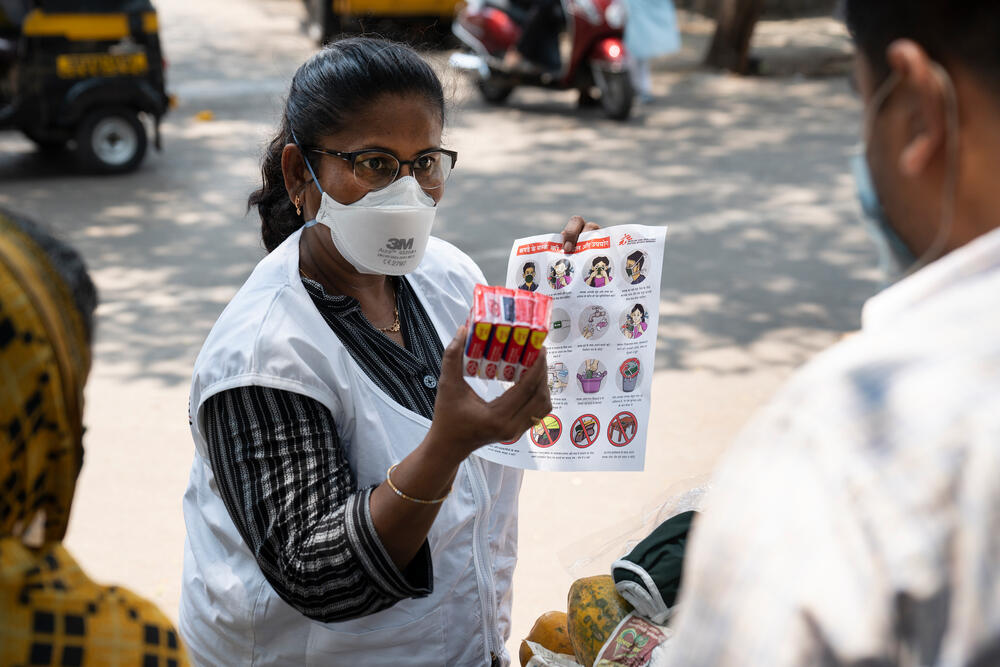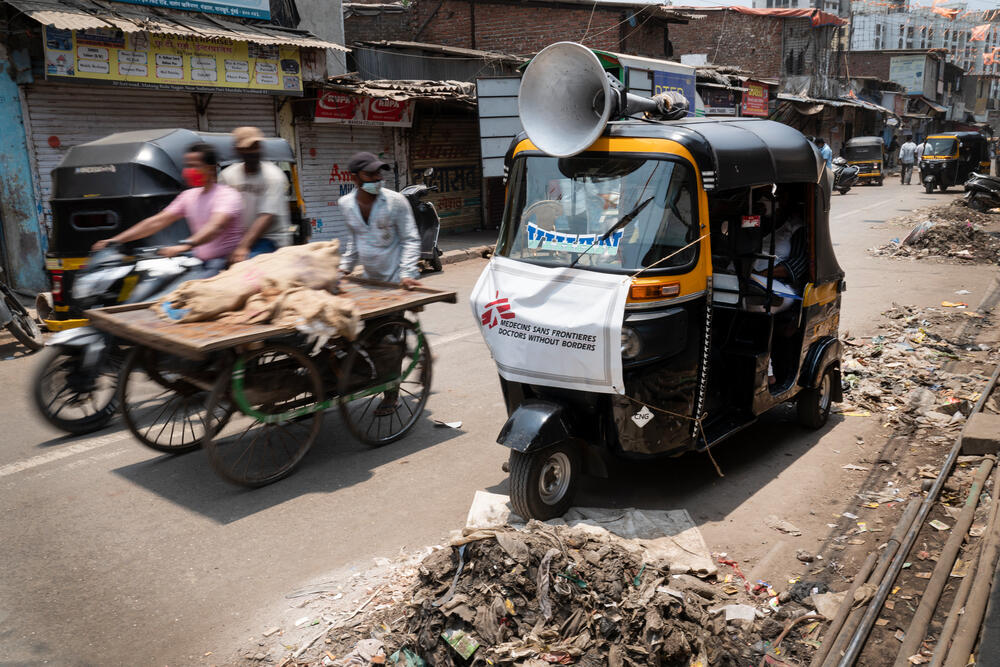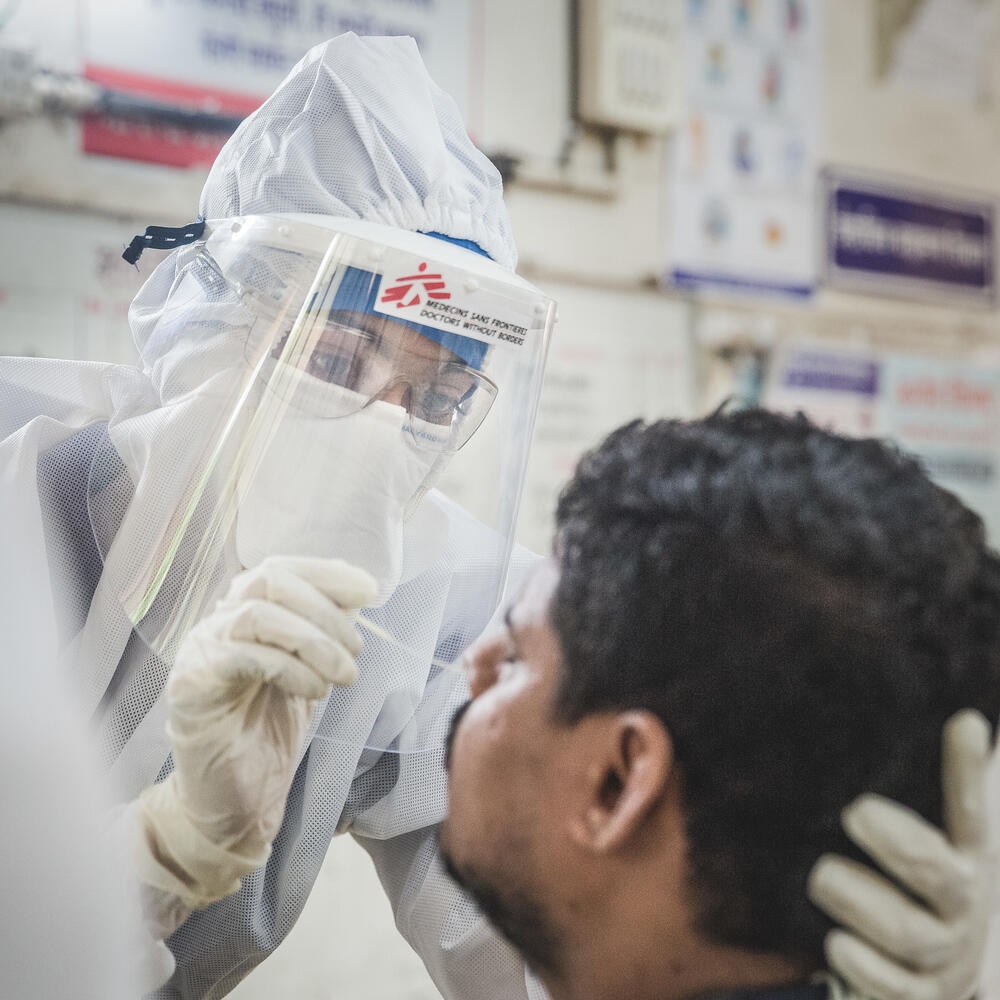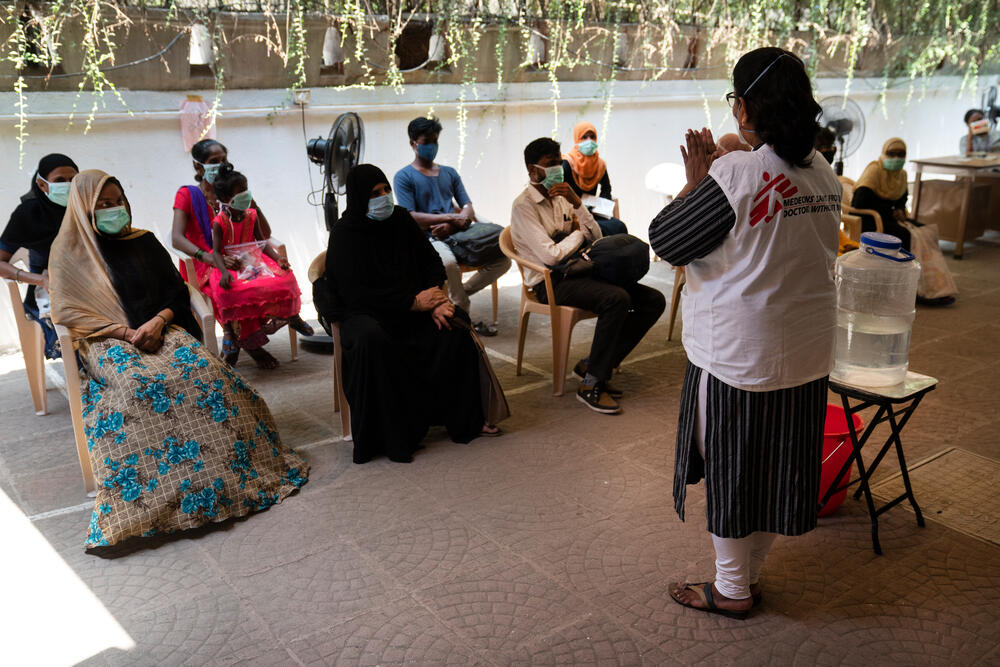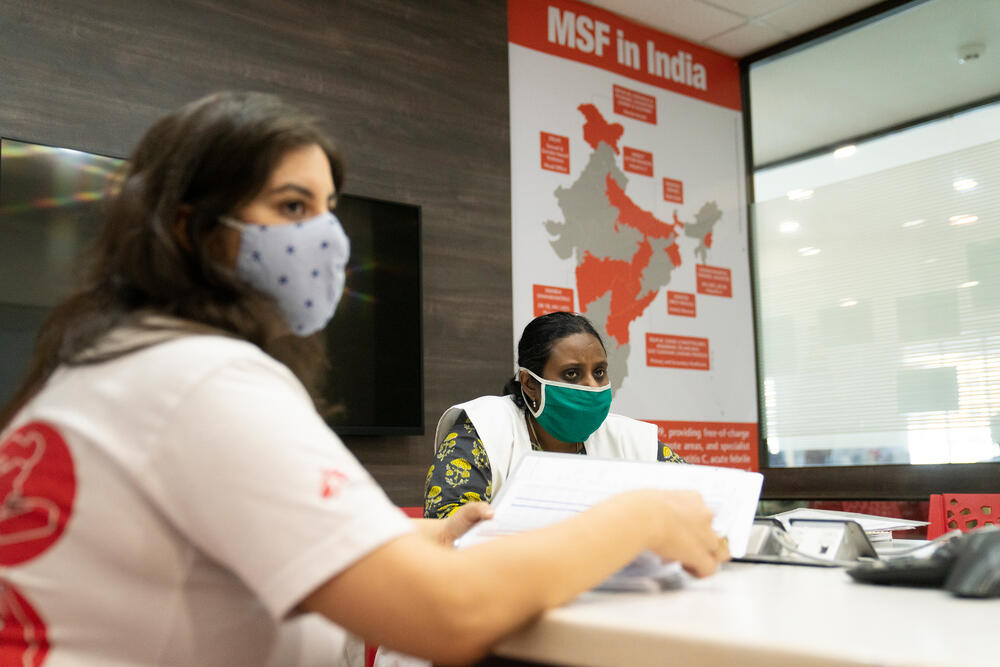COVID-19 in India: Four reports from the frontline in Mumbai
As India’s healthcare system struggles against a devastating surge in COVID-19 infections, we share the experience of four MSF staff members working to tackle the virus and protect vulnerable people living in Mumbai.
Mabel Morales, medical coordinator for MSF India
"The situation in India and in Mumbai is very bad. It’s critical across the country.
No one was ready for the second wave. It caught everybody by surprise. In a very short time, it’s turned into a major crisis. It’s so much worse this time and it was so sudden. There are many, many cases and the last week of April saw a real increase.
Healthcare workers are overwhelmed and exhausted. There is so much to do.
The authorities here are well-organised and are adapting to the situation as it evolves as best they can. But as the cases increase, it’s getting harder to find beds.
The situation is terrible, but the commitment and the dedication of the staff is extraordinary. There is a very strong feeling of solidarity in the team. We are so committed to helping the patients.
The needs here are so great and what MSF is doing is just a small part. But it’s important for us to be here. Staff from other hospitals are coming to us to take part in our training and we’re able to support them and share what we know.
I feel that we’re in the right place and we’re all working together."
Dilip Bhaskaran, project coordinator
"We are working with the local authorities to co-run Mumbai’s “Jumbo” COVID-19 care centre in Bandra Kurla Complex (BKC).
During this second wave, our role here is to improve the quality of care for patients with moderate illness at this 2,000-bed hospital.
Even though we are a small part of a big operation, our job is very important. Improving care and managing patients well with oxygen means fewer people will need to go on to ventilators in intensive care units.
This work has two aspects: medical and logistical.
On the medical front, the biggest issue is training new and junior medical staff from the public sector. For example, we’re working with lots of new doctors who are just out of college and need training in patient care and bedside management.
On the logistical front there is also a lot to be done. Infection prevention control – known as IPC – needs to be managed. Water and hygiene need to be managed, too.
We’re in the middle of summer and it gets very hot inside the treatment tents. Temperatures can reach more than 40 degrees, meaning both patients and healthcare workers can lose a lot of water and can become dehydrated.
I’ve been with MSF since 2006 and have worked on many emergencies and overall, we are doing well as a team here. It is coordinated action."
Medical care where it's needed most
Help us care for people caught in the world's worst healthcare crises.
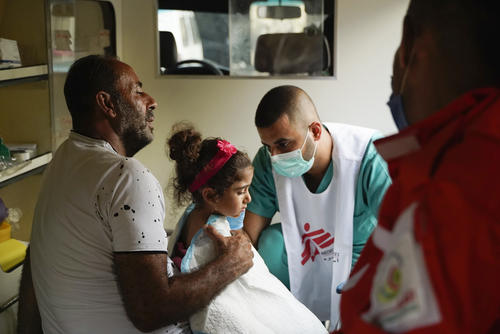
Santosh Choure, health promotion manager
"More than 800,000 people live here in M-East Ward.
It’s a densely populated area of the city where 70 percent of people live in slums.
People are scared and many of them prefer not to get tested even though they have symptoms. They’re afraid of being quarantined or hospitalised and separated from their family members.
I manage a team of 10 health promoters and we’re expecting to be joined by 10-12 more very soon.
The team is tasked with raising awareness about the virus within the community in different ways:
Community health workers travel through the narrow lanes of the informal settlements on tuk-tuks, delivering COVID-19 prevention messages through loudspeakers and sharing information on the services available.
We also conduct handwashing demonstrations and meetings throughout the community with people who live in the slums, patients waiting in public and private healthcare centres, private sector doctors and healthcare workers. We reinforce the messages about wearing masks, social distancing and other ways COVID-19 can be prevented.
However, it’s hard when five or six people live together in small houses that might only be a few metres wide.
We’re also doing digital health promotion, reaching thousands of people on Facebook with videos and messaging – especially the younger generation who are more active on social media.
The team are working really hard. We’re all part of this community and are really motivated to help as much as we can."
Aparna Iyer, medical team leader
"I work in MSF’s drug-resistant tuberculosis (TB) and HIV project in the M-East Ward. The area has a high level of TB cases.
With around 3,000 COVID-19 cases every day, we’ve adapted to the lockdown restrictions… but it is important that services are not interrupted for our patients who have a complex condition. We’re still diagnosing a lot of new patients with TB who were unable to seek help due to the lockdown.
We also carry out virtual medical consultations and psychosocial support to our patients by phone.
If necessary, they can be prescribed medication on WhatsApp that can be collected from local pharmacies, or they can be referred to nearby hospitals.
In the first wave, there was much more panic and we saw a lot of fear among patients. Now, there are extensive awareness programmes and people can isolate at home if they test positive for COVID-19.
Our team is reaching out to our patients over the phone to help them manage their anxiety while they’re isolating. And, if they need oxygen support they are referred to hospital.
My biggest concerns are the knock-on effects on other aspects of healthcare.
Right now, so many hospitals, healthcare centres and healthcare workers are being diverted to the COVID-19 response that other vulnerable patients like those with TB, HIV, diabetes or hypertension are having to travel further to find somewhere that can treat them.
However, my biggest concern is about the availability of oxygen and isolation beds, including critical care for patients co-infected with both TB and COVID-19. What will happen if patients start falling sick when we need to deal with these critical needs?"
How can I help the COVID-19 crisis in India?
MSF has launched an emergency medical response in Mumbai, India, providing staff, expertise and life-saving supplies during the COVID-19 crisis.
We’ve been able to move quickly because of the unique way we are funded – by people like you, making donations that aren’t limited to one specific event. This means we don’t need to start a fundraising campaign before we can help – we use flexible “unrestricted” funds to act fast and save lives, now.
Please make a donation today. If the crisis escalates in India or anywhere in the world, your unrestricted donation will mean that our emergency teams are ready for whatever comes next.
